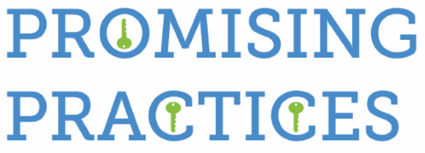You are here
FSCP Key Apr/May 2025
It’s hard to believe that we’re approaching the end of another school year and this is the last FSCP Key until August. While there seem to be an endless amount of unknowns these days, one thing is certain: family, school, and community partnerships is not going away and is more important than ever.
As you’ll see in this Key’s Research Brief, now is the time to celebrate. No win is too big or too small. And in that vein, the Office of FSCP is celebrating the enormous response of registrants for the annual FSCP Retreat on May 1-2. We have our largest group (over 100) from the largest number of districts (over 30) to date! We still have a small handful of slots available for those interested in attending.
Thank you for your continued partnership and the tireless work you do to support students and families. As one of my favorite Peloton instructors said in a recent strength class: “Tomorrow Needs You.” The Office of FSCP looks forward to working with you next year!
Several FSCP events are on the horizon. Please share the dates far and wide and mark them on your calendars. Also consult the FSCP Year-at-a-Glance.
Ongoing Self-Paced Courses. Available for free here.
April 18, 10-11:30 AM, Virtual Coffee Chat for district staff. Guest Presenter: Dr. Emily Markovich Morris, Brookings Institute . Theme: Evaluation.
May 1-2, FSCP Annual Retreat in Estes Park. District-level family engagement staff and their pre-approved guests invited.
May 6, 9-2:00 PM, SACPIE. Open to members of the public.
May 8, 10-11:30 AM, Virtual FSCP Community of Practice. Invited CDE offices.
To refresh and reinvigorate YouthPower365 (YP365) Middle School Afterschool Explorers programming, staff conducted a student survey to understand interests. Cooking was an overwhelming favorite student interest, and the concept of Culinary Club was created.
The Culinary Club coordinator position drew the interest of a local executive chef, Santosh Koradi. He envisioned the engagement of middle school students in the culinary arts to involve their families; consider affordable, healthier eating practices; grow confidence; build community; and introduce students to a future career. He guided the curriculum development, as well as weekly lesson plans and meals. The YouthPower365 staff connected with the local food pantry, The Community Market, to provide many of the ingredients.
Culinary Club meets once a week at each of Eagle County’s four middle schools for two hours after school. The program models and teaches safe cooking skills to allow the students to prepare the weekly recipe. In some cases, the students have provided ideas for recipes that they would like to cook. Other times, family members attend as a “guest chef” and teach the class a recipe important to their family.
Click here for more examples of Promising Partnership Practices.
One of the six district leadership strategies is Celebrate Milestones. This is defined as “recognizing school and district successes in partnership programs and practices, and disseminating the successes widely” (Epstein et al., 2019).
Celebrating activates the brain’s reward system, fosters a sense of accomplishment, and boosts self-efficacy, whereas not recognizing successes can lead to chronic stress and burn out (Wang et al, 2017; Maslach & Leiter, 2022). Celebrating also helps us reflect, and solidifies what lessons we’ve learned (McNally, 2024).
McNally recommends celebrating by: getting clear on your goals; deciding ahead of time what your small rewards to recognize progress and big rewards for the big wins will be; and identifying an accountability partner (2024). These recommendations align well with the activities Joyce Epstein (2019) recommends for Celebrating Milestones, some of which include:
- Hosting an end-of-year celebration for schools to share best practices and plan for next year;
- Sending thank you messages to principals, FSCP team members, and volunteers each year thanking them for their work on partnerships; and
- Organizing a recognition program to celebrate schools for achieving milestones.
As the 2024-2025 school year wraps up, remember how important celebrating big and small wins is to fostering social support and enhancing relationships.
ICAP is a multi-year process that intentionally guides students and families in the exploration of career, academic and postsecondary opportunities. With the support of adults, students develop the awareness, knowledge, attitudes, and skills to create their own meaningful and powerful pathways to Postsecondary and Workforce Readiness.
School and District Accountability Committees (SACs and DACs) have a legislated opportunity to expand stakeholder engagement ICAP programs at the school.
SACs, including family and community members, can research work-based learning opportunities in their region, co-plan college visit days, and give feedback on concurrent enrollment and CTE programs.
Committees could take time to develop resources for family conversation starters to discuss postsecondary and workforce readiness opportunities in and of school.
If ICAP resources are ready for a district level refresh, the DAC could take time to give feedback on the ICAP approach, and brainstorm complementary resources to ensure families have ideas on how to participate in the ICAP throughout high school.
The SAC and DAC homepage on the CDE website has a lot of information for districts to use for training accountability committee members.
Thank you for spending time with us this month!
Watch for the next edition in Aug/Sept.
For questions, contact Darcy Hutchins, Director of Family, School, and Community Partnerships, at hutchins_d@cde.state.co.us or 303-562-8175












Connect With Us





